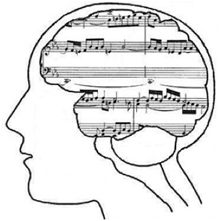 When I began as a classical guitar concert player and teacher, I used to tell my students ‘Practice makes perfect’, so often that their eyes glazed over. It’s a cliché, so no one paid any attention to it. They ‘knew’ it was true, practised when they felt like it, berated themselves when they did not. But is it true? Like most clichés there is a grain of truth mixed with some more suspicious flavours. Let’s call ‘Practice makes perfect’ an unexamined belief.
When I began as a classical guitar concert player and teacher, I used to tell my students ‘Practice makes perfect’, so often that their eyes glazed over. It’s a cliché, so no one paid any attention to it. They ‘knew’ it was true, practised when they felt like it, berated themselves when they did not. But is it true? Like most clichés there is a grain of truth mixed with some more suspicious flavours. Let’s call ‘Practice makes perfect’ an unexamined belief.
Let’s examine the belief for playing the guitar, as I know that well, and then generalise it to other contexts especially coaching. Suppose a coaching client said ‘Practice makes perfect’, what questions would you ask to clarify what they mean?
Pause a moment before clicking to the rest of the article.
What do we mean by ‘practice’? It could be an abstract noun, or it could be an unspecified verb, either way we need to find out and say how it works before linking it to perfection.
I told my students to ‘practice’. The most important question here is not what it meant to me, but what it meant to them. So I asked my students what they understood when I said ‘practice’. They said it meant play the guitar to improve. It implied a certain amount of conscious incompetence on the their side, but they were OK with that. They (especially the younger students), also understood it as a task, homework, or imposition, and so inherently unpleasant. It also seemed to be an artificial activity; a little disconnected from the real business of playing for enjoyment or profit. So this meant that many of my students were put off the activity by the word I was using to describe it.
What I wanted was for them to play and enjoy, and also to do some disciplined work that would help them improve quickly so they could get even more enjoyment and skill. The word I was using was getting in the way of my intention.
So, as Moshe Feldenkreis used to say, ‘When a word stops you from doing something…change the word.’ I stopped asking my younger students to practice, I asked them to ‘play’. Much better word. They wanted to play, they wanted to have fun. Sometimes I would tell them exactly how I wanted them to ‘play’, as a special ‘fast track’ to improving. This is what is called ‘deliberate practice’.
I told my adult students also to play and enjoy, but also to make sure they did ‘deliberate practice’ too. So what is deliberate practice?
Deliberate Practice is how to improve and it applies to any activity. I had never told my students how to practice, I assumed they knew. If you do something over and over again, then you get better at that thing. If you practice mistakes, you get better at mistakes. If you think about practice is a sloppy way, that is what you will do without thinking. The brain lays down the tracks and if they get deep enough it is hard to derail and go another way. Our repeated actions project into the future, the only way to change the future is to change what you are doing now.
What is deliberate practice?
It’s the way we get better at something faster, it is a mindful, deliberate series of steps. There are no shortcuts. There is always a history of time spent to achieve mastery, even for the prodigies and geniuses of a subject. Malcolm Gladwell, in his book ‘Blink’ proposed the 10,000 hours rule, – in order to really master a skill, you need to do it for 10,000 hours minimum. That is to be world class; we can be very good with less hours thank goodness.
It is not just about time, it is about how you spend it.
Jeff Colvin in his book ‘Talent is Overrated’ gives the rules of deliberate practice.
1. Deliberate practice is designed. It designed from a body of existing knowledge that a beginner usually does not have. That is why a coach is important. If someone wants to build a skill – for example, the ability to have rewarding relationships, to be happier, to make good decisions (and these are activities and skills, not end results), they need a coach to design their practice. That is what a coach does. This is also why self coaching will only take you so far. You need another perspective, a coach that knows what to work on, helps you design your practice and then be an accountability partner for you to keep you going.
2. Deliberate practice can be repeated easily. It has to, because repetition makes the habit and leads to unconscious competence.
3. Feedback is crucial. Without feedback we cannot adjust and learn. The sooner the feedback comes the better. We need to see the effects of our actions, so we can reflect and learn more.
4. Deliberate practice is demanding mentally (and sometimes physically). It takes focus and concentration, it cannot be done mindlessly. This can mean it is not very attractive for people, they have to be motivated. It has to engage values and emotions or they will not do it.
One example from my guitar playing days. I found like most performing artists that I could perform fine in the comfort and safety of my own front room, but in front of an audience – that was a different matter. I needed to know the pieces well and I needed to be able to focus and ignore distractions. So I designed some deliberate practice.
I would practice my concert pieces in different ways. I would play them with the radio on playing loud music. I would play them with a friend trying to distract me by speaking to me while I was playing. I would play them in my mind without the guitar. I would play them with my eyes closed. I would play them with a scarf tied around the guitar so the sound was muffled and I could not hear what I was playing.
When the actual concert came round – it was a piece of cake compared to what I had put myself through. My practice had made the actual performance much easier by applying some artificial restraints, so that when they are removed – it is easy.
As a coach I try to apply the principle of deliberate practice to my clients. What do they want to get better at? Life? relationships? Work? Decision making? If they are serious then there need some deliberate practice that you can co-design with them. It will accelerate their progress. As the saying goes, ‘if you want to understand, act’.
To be continued in part 2…

